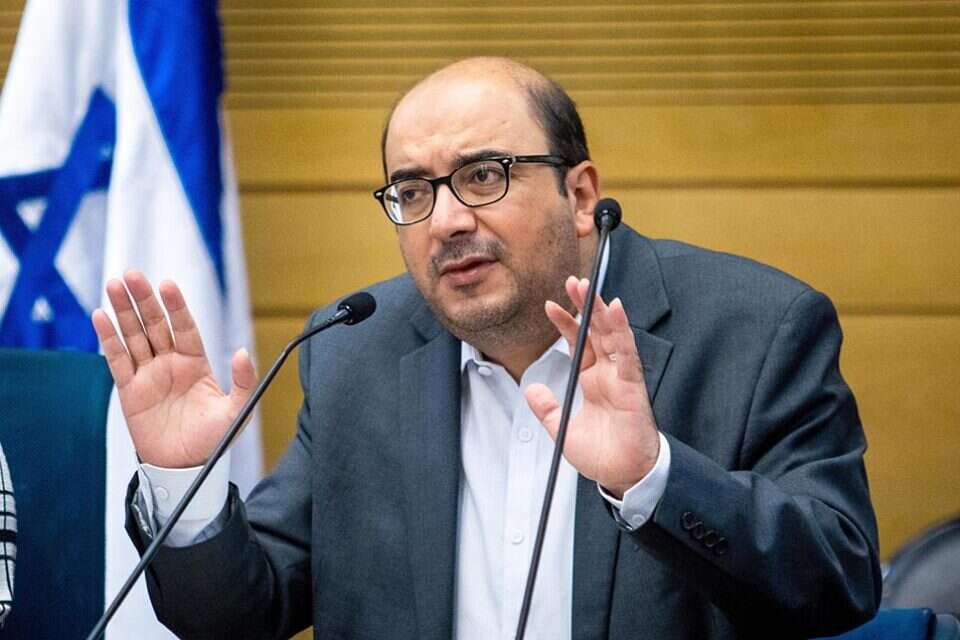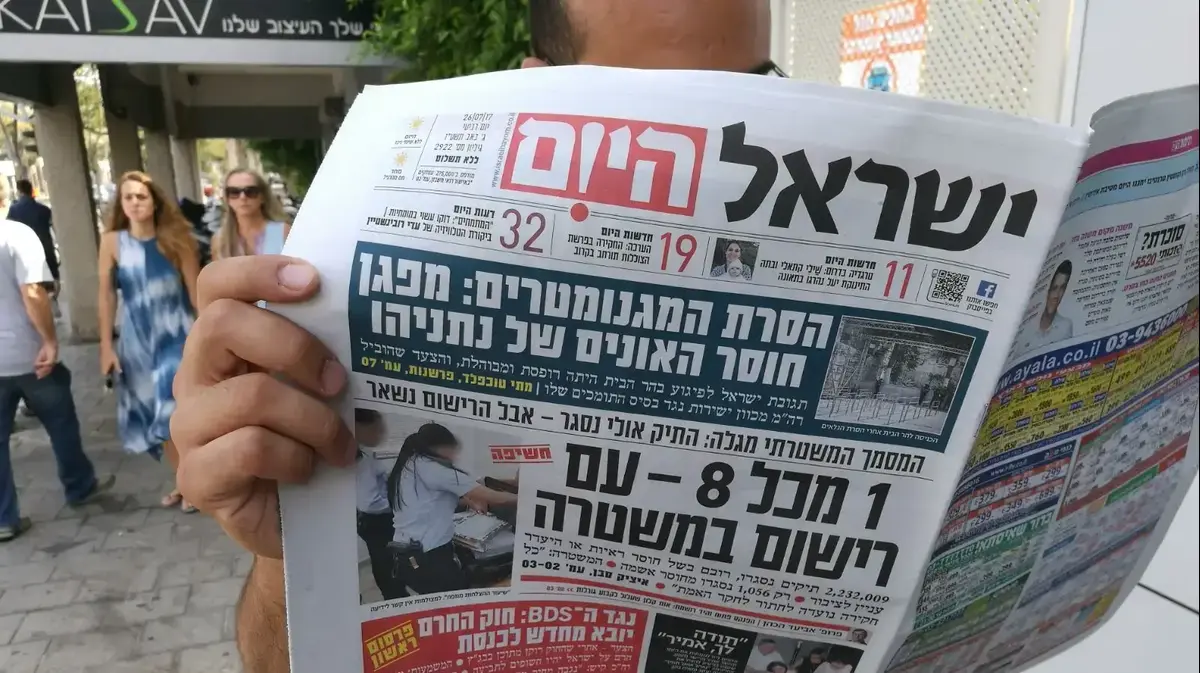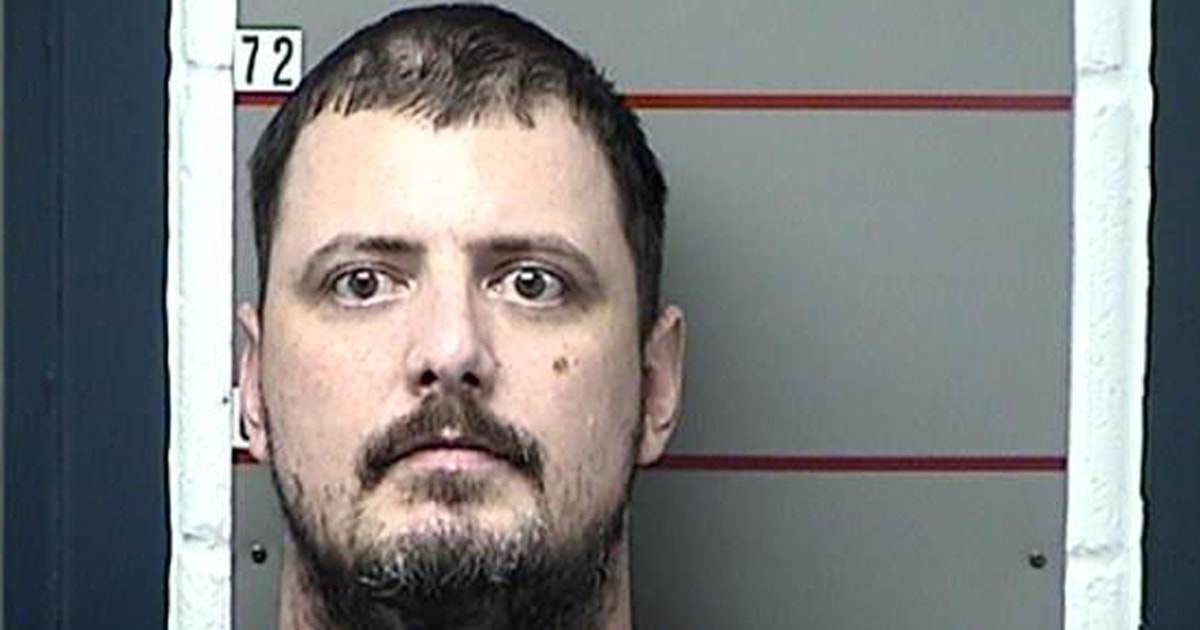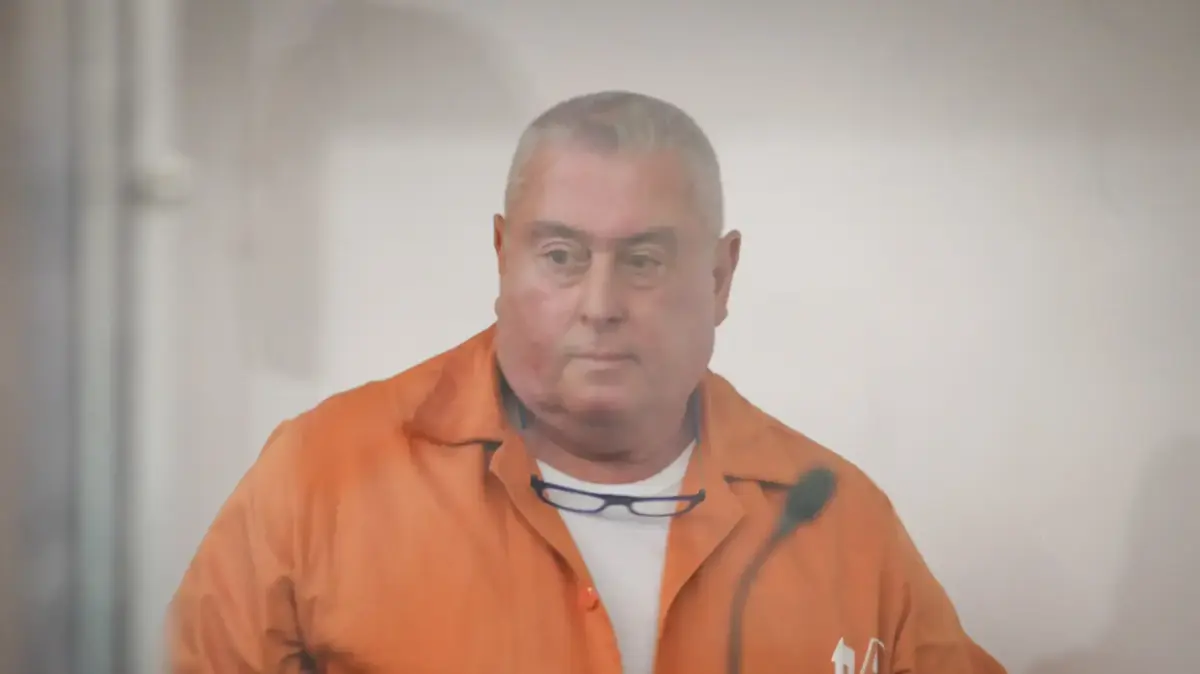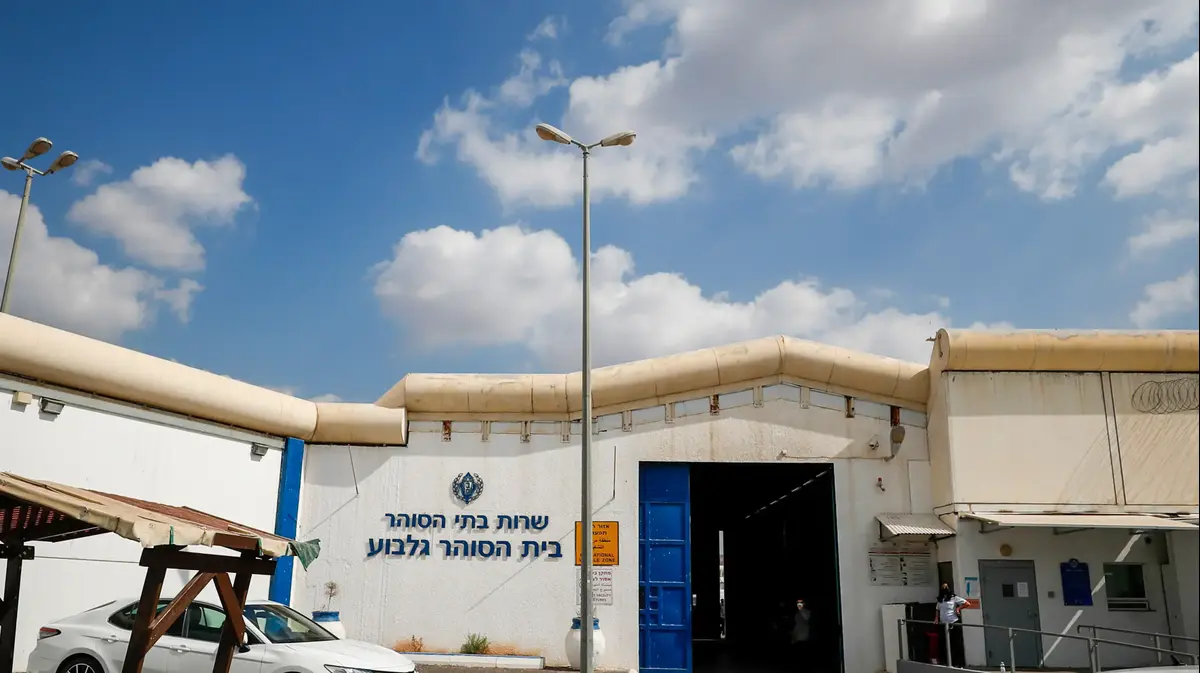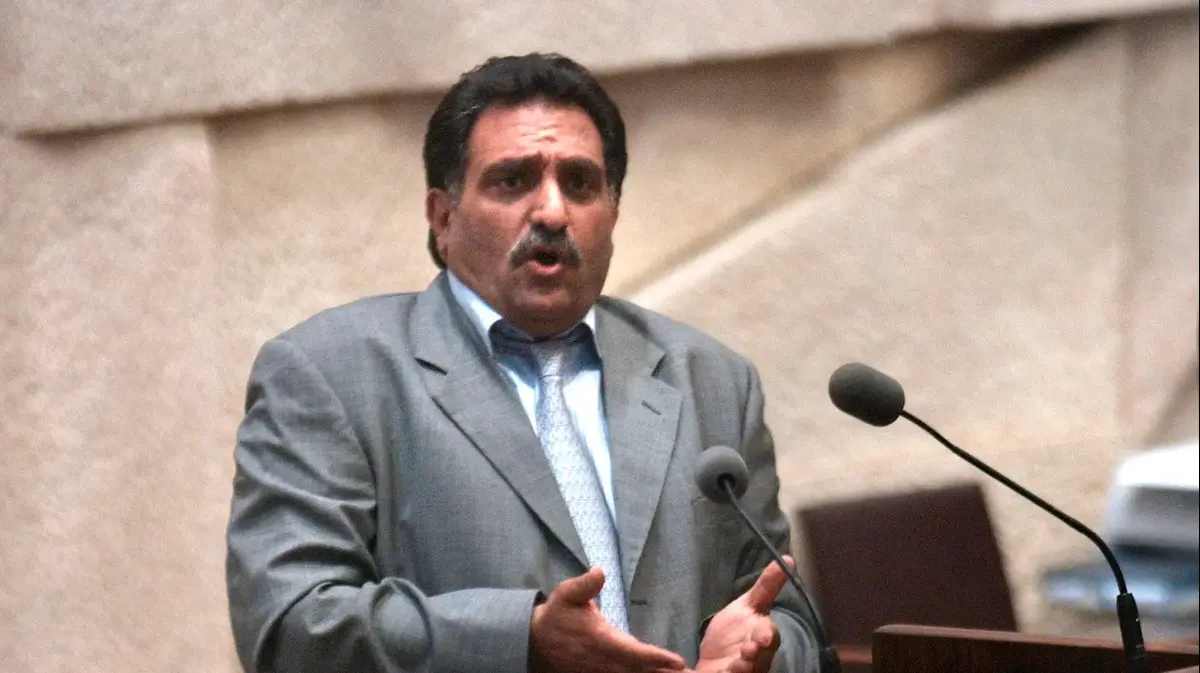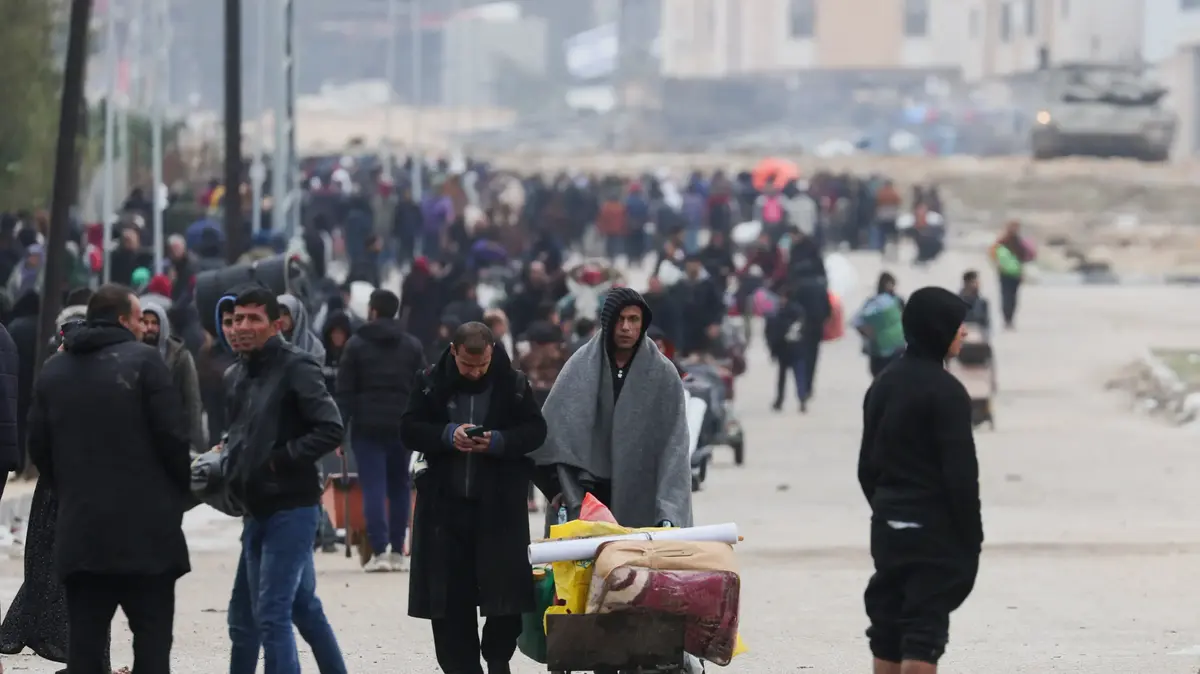In 2006, an Israeli by the name of Firas Asila received a request from MP Azmi Bashara, who asked him to transfer to Israel sums of money received from Jordan and other countries. Bashara asked Asila to hide his involvement and the source of the money, and Asila complied. He contacted a Jordanian money changer, informing him that he was going to reach him cash - and ordered him not to ask questions.
Azmi Bashara, photo: Lior Mizrahi (archive)
Over the course of a year, Asila transferred 390,000 dollars to Bashara.
When Bashara wanted the money in shekels, he said he wanted to "receive the books in Hebrew".
When Asila was convicted of money laundering in 2008, Bashara had already managed to escape to Jordan after being suspected of spying against Israel.
Therefore, the similarity between the "Asila case" and various events described in the "Blad case", the details of which were first revealed in "Israel Hayom", is puzzling.
This is not the only time that Bashara transferred money to Israel.
In 2014, he transferred millions of shekels that he raised from a Qatari prince to the soccer teams Sakhnin and Ahi Nazareth.
The person who mediated between the groups and Bashara's money is none other than Avani Bana, the hero of the money suitcase affair in the Balad case. "I met in Qatar with people from the management of the groups, with Bashara and with the prince," Bana told the interrogation. "The management asked Bashara to help them, Because the groups were on the verge of dissolution.
The prince of Qatar, Tammin bin Hamad, agreed to donate money to the groups.
2 million dollars for the Nazareth brothers and 4 million dollars for Sakhnin."
The first time Balad operatives were caught transporting suitcases to Israel was in 2012, regardless of the elections. Where did that suitcase end up, which was explained to the customs investigators that it was meant for the needy? We don't know.
The exchange in Jaffa where Abu Shahada allegedly redeemed the money, photo: Yehoshua Yosef
In the testimony of the Secretary General of the Palestinian Authority, Awad Abdel Fatah, he claimed that Bashara founded a charity fund in London to which he pours Qatari money, which is transferred to the Arab Cultural Association in Haifa.
Abdel Fatah also said that in 2006 he and Bana brought money from Jordan to finance the defense of the murderers of Aden Natan Zada, and that the two were even questioned by the police about it.
"I brought about NIS 90,000 from a businessman in Amman. It was the first and last time I brought money to Israel," he told the investigators.
open ends
After reading the Balad investigation, the question arises: Where was the Shin Bet?
From the analysis of the investigation materials, it is clear that the police investigators were blind to what was happening across the border, and desperately needed one of the witnesses to "open up" about his friends.
It did not happen.
There was no cooperation with the Jordanian police.
The fact that Balad activists told of connections with Bashara but denied his involvement in financing the party, prevented the enforcement authorities from defining the investigation as having security features, and likewise the Shin Bet, whose actual and legal capabilities are above and beyond those permitted in a criminal investigation, remained out of the picture.
I mean - that didn't happen either.
The case was submitted to the High Court with more open ends than closed ones, and there is a huge gap between the seriousness of the acts and the shameful plea deal.
Let's analyze the evidentiary holes in the case of the money suitcases: Balad operatives were caught twice bringing money suitcases into Israel, but there is no evidence that the suitcases were full of banknotes in their other entries. Also, the value of the banknotes in the seized suitcases was less than 200 thousand, and a day later an amount was deposited into the bank account higher. The fact that a suitcase of money was seized in 2012 does not fit with the thesis that the money was intended to pay off the debt, which was created only months later. Of course, it is possible that the money was routinely smuggled, but the evidence for this is circumstantial and scant. If a security investigation could have been launched, it could have bridged The evidential gaps.
Avichai Mandelblit.
The ombudsman at the time decided not to press charges, photo: Alex Kolomoisky
But even without the Shin Bet, in the evidentiary situation obtained by the investigation, it is not clear why the prosecutor's office refrained from prosecuting money laundering offenses. The law allows for the prosecution of these offenses as well, which would have aggravated the ridiculous penalties. And in view of the results, there is no doubt that the defense attorneys Amit Hadad, Naa Milstein , Namir Adelbi and Khaled Titi gave their customers excellent service.
"Prevent harm to civilians"
The decision of the then ombudsman Mandelblit not to file an indictment against the party is scandalous. Why? The court ruled that the actions of the convicted were in the best interest of the party.
Mandelblit reasoned that while the prosecution of a corporation harms the shareholders, the prosecution of a party will harm "not only the founders of the party, but also the citizens who identify with its goals and public positions."
But logic says the opposite.
Filing an indictment against a party protects its electorate and the idea it promotes from the corrupt working within it.
Most of the BLD case remains in the investigation rooms, and has not been exhausted from the criminal point of view. Therefore, after three weeks of painstaking and meticulous work, "Israel Hayom" presented to its readers the materials of the case that the High Court did not get to see.
were we wrong
We will fix it!
If you found an error in the article, we would appreciate it if you shared it with us

